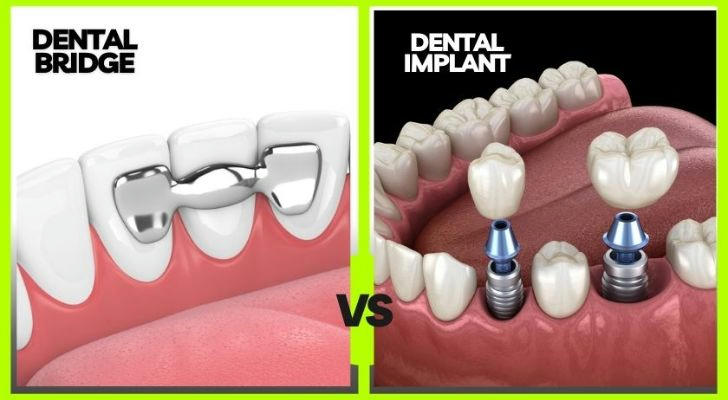Effective Solutions to Replace Missing Teeth: Dental Implants, Dentures, and Bridges Explained
Missing teeth can significantly impact oral health and self-confidence. Beyond the visible gap, tooth loss often leads to bone deterioration, misaligned bite, and difficulties with chewing and speaking. Understanding the main replacement options—dental implants, dentures, and bridges—can empower individuals to make informed choices tailored to their health needs and lifestyle. This guide breaks down these options, highlighting their advantages, drawbacks, and typical costs to help navigate the decision-making process.

Understanding the Impact of Missing Teeth on Oral Health and Well-being
Losing one or more teeth affects more than just appearance. Teeth stimulate the jawbone through chewing, maintaining its density. When teeth are missing, the bone beneath can shrink due to lack of stimulation, a process called bone resorption. This weakening of the bone can alter facial structure and cause further tooth loss.
▪️ Adjacent teeth may drift into empty spaces, causing misalignment and bite problems that can lead to jaw pain or temporomandibular joint (TMJ) disorders.
▪️ Missing teeth also affect chewing efficiency and speech clarity, as gaps can alter airflow and pronunciation.
▪️ Spaces left by missing teeth can trap food particles and bacteria, increasing the risk of gum disease and decay in surrounding teeth.
✅ These combined effects underscore the importance of timely tooth replacement for both health and quality of life.
Dental Implants: A Durable and Natural-Looking Replacement Option
Dental implants are considered one of the most effective and long-lasting solutions for missing teeth. They involve:
- Surgically placing a titanium screw into the jawbone, acting as an artificial tooth root.
- After healing and bone integration, an abutment and crown are attached, restoring full function and appearance.
Advantages:
- Preserve jawbone health by stimulating bone growth.
- Prevent adjacent teeth from shifting.
- Natural look and durable materials.
- Care similar to natural teeth.
Considerations:
- The process can take several months due to surgery and healing.
- Cost ranges from $3,000 to $5,000 per tooth.
- Higher upfront cost but often a lifetime solution without frequent replacements.
Dentures: Versatile Solutions for Partial and Full Tooth Loss
Dentures offer a removable option to replace missing teeth, suitable for both partial and full arches.
| Type | Description | Cost Range | Key Points |
|---|---|---|---|
| Full Dentures | Replace all teeth on upper or lower jaw | $1,000 - $3,000 | Non-invasive, relatively quick fabrication |
| Partial Dentures | Fill gaps where some natural teeth remain | $500 - $1,500 | Attach to neighboring teeth with clasps |
| Overdentures | Fit over implants for added stability | $6,000 - $12,000 | Middle ground between dentures and implants |
Benefits:
- Non-invasive and relatively quick to make.
- Affordable compared to implants.
Drawbacks:
- May feel less stable than implants.
- Require daily removal and cleaning.
- Adjustment period needed for eating and speaking.
Dental Bridges: Fast and Affordable Fixed Tooth Replacement
Dental bridges are fixed prosthetic devices that "bridge" the gap by anchoring to adjacent natural teeth or implants.
▪️ Traditional tooth-supported bridges require reshaping neighboring teeth to support crowns connected to the false tooth.
Treatment duration: Typically completed in 2 to 4 weeks.
Cost range: $2,000 to $5,000 for a single tooth bridge.
Advantages:
- Fast and less invasive than implants.
- Restore chewing function and aesthetics effectively.
- Fixed in place—no removal needed.
Limitations:
- Do not prevent jawbone loss since they don’t stimulate the bone beneath the missing tooth.
- May need replacement every 10 to 15 years.
- Risk of failure if supporting teeth decay or are damaged.
🔹 Implant-supported bridges offer better durability and bone preservation but cost between $5,000 and $15,000.
Comparing Costs and Choosing the Right Option for Your Needs
| Replacement Option | Cost Range | Pros | Cons |
|---|---|---|---|
| Dental Implants | $3,000 - $5,000+ | Long-lasting, bone preservation, natural | Higher upfront cost, longer treatment time |
| Dentures (Partial/Full) | $500 - $3,000+ | Affordable, quick, non-invasive | Less stable, daily maintenance required |
| Bridges (Traditional) | $2,000 - $5,000 | Fixed placement, moderate cost | Can affect adjacent teeth, no bone preservation |
| Implant-Supported Bridges | $5,000 - $15,000 | Durable, preserves bone | Higher cost |
Key considerations:
- Budget and cost tolerance.
- Oral health status and bone quality.
- Treatment duration and invasiveness.
- Personal preferences and lifestyle.
💡 Consulting a dental professional is essential to evaluate oral health and lifestyle needs to select the most suitable and effective treatment.
Summary
Missing teeth impact oral health far beyond aesthetics, affecting jawbone integrity, bite alignment, chewing, and speech. Dental implants provide a durable, natural-looking, and bone-preserving solution but require higher investment and time. Dentures offer an affordable and quick alternative, especially for multiple missing teeth, but may lack stability and convenience. Bridges serve as a fixed, moderately priced option but do not prevent bone loss and may affect adjacent teeth. Understanding these options, along with costs and personal needs, helps ensure the best replacement choice for long-term oral health and quality of life.
